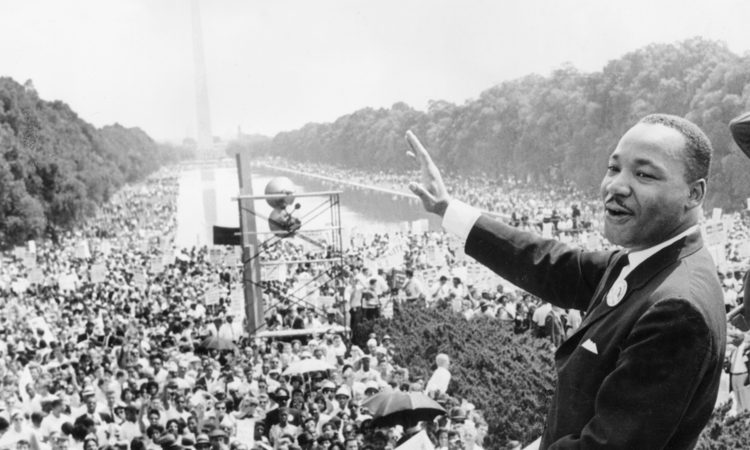When I went to Washington D.C. with my son, one of the things we saw there was the actual document of the Bill of Rights to the Constitution. It was impressive on several levels. First, it was history, the actual quill pen strokes visible to see. The crazy large S that was written on purpose for later generations to have to tell their kids “I am not exactly sure why they made it look like it was spelled ‘Congrefs’ instead of Congress, but I will look it up.” The thought that before that was written, it really depended who was locally in charge as to whether or not you had these rights. The most amazing to me was to see that they needed to state these things out loud, because people didn’t assume that they had those rights automatically.
When they were created, there was controversy over these amendments, because they took away the power of the states to write their own bills of rights, which they may have wanted to be different in some way. For example, many of the states requested that it be explicit that any federal taxes be voluntary. Even keeping in mind how impossible and short-sighted that would have been, it does show the prevailing feeling at the time from some of the original colonies that they should be organized more like the principalities of Europe, a loosely federated group of independent states with more or less total control within their borders. These people lost in the elections of delegates to the congress, and so we ended up with the Bill of Rights as it stands today.
There were originally seventeen articles proposed, of which three were combined into other amendments, two were abandoned as redundant, one became a later amendment, and one remains unratified.
Of the people proposing rights be enumerated in the Constitution, James Madison was the most instrumental. He gave out a clear and concise description of the rights that he thought the country needed. The speech, which can be read at: https://teachingamericanhistory.org/resources/bor/madison_17890608/ is great not only for that, but also for the fact that in numbering these rights, he used the words fourthly, fifthly, sixthly, seventhly, eighthly, and ninthly, which I wish we still used today.
In any case, here is a quick rundown of my own understanding of these rights, and a little about why they were needed and what they mean.
The First Amendment basically says you can say what you want, be whatever religion you want, print what you want, demonstrate how and where you want as long as it is peaceful, and ask the government for anything you want. In my opinion, this is very simple. However, the part that is poorly understood is that it does not mean anyone has to listen to you, or be a part of your religion, or attend your demonstration, or give you what you asked the government for if it is not reasonable. This is because people tend to feel that they are correct in what they say and do, and others are wrong. So this is obviously why we need this amendment.
The Second Amendment is poorly understood, because it has been changed over and over by judicial decisions and local laws that make it whatever the beholder wants. The original context was because the new nation had no standing army, and the concept of a police force was not yet created. So the first line of defense would be similar to the National Guard. Locally raised units of defense while the government got its shit together and mobilized, which at that time would have taken a while. This would include making guns for the army they would raise. So before that, they would depend on people having their own guns. It is clear in the context and the time of the folks who wrote it, but it has not adapted well to the changes in times and weaponry. The arms people hold and any reason behind their need for them has undeniably changed. In my opinion, the “well-regulated militia” is no longer needed, nor necessary or effective, and so the need for even the vastly more advanced weaponry we have now is up for debate. There are reasons for which some of them can be justified, but there is a reason why this is not the first amendment. That first amendment is the one that should drive a calm discussion about this one.
The Third Amendment is the first of the “okay, whatever” amendments. It says they can’t take over your house to put soldiers there. At the time, this was important, because there were no permanent military bases. They did do this in some instances before that time, and it must have been a bummer. But it is tough to imagine this coming into use today.
The Fourth Amendment is also poorly understood, I think mostly because of modern police dramas, but it says you have to get a warrant to search or seize anything in an investigation, and it says that warrant requires a specific reason for it to be given. Where it becomes problematic is when there is disagreement on the reason.
The Fifth Amendment has the one part everyone knows, and some others that people may not realize are included. First, you cannot be compelled to testify against yourself. Secondly, you have to be indicted by a grand jury before you are put on trial, fined, or put in prison. Thirdly, if you are declared innocent, they cannot try you again for the same crime. Fourthly, (see, it is cool,) the government can’t just take your stuff without paying you a reasonable amount for it. This one has also been modified over and over by later laws and decisions, but hopefully, it will continue to be one of our most important protections against government overreach into the personal lives of the citizens. Much more important, in my opinion, than the others.
The Sixth Amendment is one of the ones that is important, but also never referred to by name. It is the one that says they have to tell you what you are on trial for, that you get to hear who is accusing you, and what they are saying, you get to have a lawyer on your side and that lawyer can call witnesses to defend you and ask questions on your behalf to your accusers, and that you get to have a jury of impartial folks decide if you are guilty or not. This is the scariest amendment, because imagine how screwed up it would be if we didn’t have this. I am imagining being that guy chained up in a dungeon while my fate is decided without me.
The Seventh Amendment is another of those “okay, whatever” ones, because it says basically any crime or issue involving more than twenty bucks requires a jury, and once the case is decided, you have to follow established rules if you want to appeal it, or ask for a new trial. It kind of seems like this is mostly covered earlier, but okay then.
The Eighth Amendment says no cruel and unusual punishments can be used, and no crazy high fines or bail can be imposed. Well, okay then. I mean, I guess they were not too far removed from trial by torture, and sentences involving mutilation and or confiscation of all lands and the like, so….
The Ninth Amendment is the most vague and confusing. It says that these rights we are declaring don’t mean that you don’t have other rights. What the hell? I mean that is the biggest punt ever. Although it does mean that we have to look at each later case individually and people can say things like “my state can do this even though this other state says it is illegal in their state.” Or they can say “my religion says this,” or “I should get to speak even though everyone hates what I am saying.” And then that likely goes to court.
The Tenth Amendment is by far the most currently problematic, because it says that if it is not specifically a federal right, the states can do whatever they want. Personally, I think we should be past this, because if you are American, and in many ways proud of that, you should care more for the entire country and its citizens than one state, or one group, or one religion, or one of anything that causes you to see your fellow Americans as “other.” Controversial, I know, but the thing is, we are never going to get past the need to declare our rights in writing until we get past the fear of those rights being taken away from us by there scary “others” that we need to realize are actually ourselves.
In any case, no matter how they are interpreted, the ideals behind stating that we are all entitled to have rights and freedoms is a laudable one. For the most part, they all seem, like many sets of famous principles, commandments, pillars, and tenets, to boil down to treating each other well, trying to help out, and to be allowed to live and let live. They are indicative of our ability to be allowed to do these things, or to warp that ability to create and continue divisions. But as one freedom they don’t grant is freedom from time’s passage and the changes it brings, one can hope that the impulses that created them in the first place will continue in fits and starts to bring us into a better future where we will continue to view these rights as self-evident.






Leave a Reply